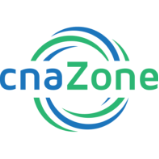Course Description
Isolation Precautions
Course Summary
Healthcare facilities, such as hospitals, clinics, and long-term care facilities, are monitored and guided by national standards to prevent healthcare-associated infections, which are infections that occur during the course of healthcare delivery. They may also occur during home health services. A healthcare-associated infection that occurs in a hospital is referred to as a nosocomial infection, and hospitals have protocols to prevent the start and spread of a nosocomial infection. Standard Precautions are the foundation for preventing the spread of pathogens in healthcare settings. Infection control techniques that are also used include Airborne Precautions, Contact Precautions, Droplet Precautions, Respiratory Hygiene and Cough Etiquette. There are also circumstances where greater protection may be needed, such as Isolation Precautions to prevent the transmission of a particularly virulent disease. To prevent infection and the spread of infection all health care professionals should be trained and required to practice safe infection control as an important part of their everyday practice.
Course Objectives
- Define nosocomial infection
- Explain the implementation of infection control techniques
- Identify how to properly and efficiently use Isolation Precautions
Course Syllabus
- Healthcare-Associated Infections
- Mode of Transmission
- The Importance of Infection Control
- Indications for Isolation Precautions
- Standard Precautions
- Respiratory Hygiene and Cough Etiquette
Target Audience:
CNA
Credits:
1.0



